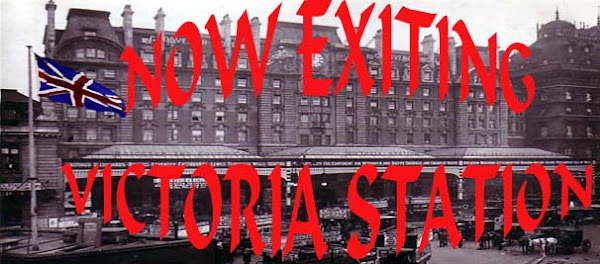As far as I am able to deduce, Modernism is the movement that evolved as a reaction to the ideas and attitudes of the Victorian period. When I was studying in Scotland I hung out with a group of Englishmen who, when presented with any element of culture that was shocking, grotesque or otherwise unsettling to their grumbling English sensibilities, always responded with the line “This would never happen under Queen Victoria.” I once asked exactly why they were so nostalgic about Victorian England and the answer was “Because life was great then. Unless you were poor… or female… or foreign.”
The freedom exhibited by the modernists is exemplified in the style of their work. Up until it came about, the prevailing style was realism. Everything was ordered. Things were in their places and art and literature told The Truth. Modernism veered away, not from the truth, but from The Truth. It began to explore new ways of viewing the fundamental realities by offering them in a different way and also offering new “truths” to contemplate. Time, for instance, was an element of modernist work that received a major revamp. In Woolf’s Orlando (the only work of modernism that I’m intimately familiar with and therefore likely to show up often in my work. Soon My repetoire will be larger...) the play with the concept of time is incredible. The book is not about “time travel” and the Methuselah-like nature of Orlando to go on and on in age is never a major plot point. He/She just does. Orlando lives for centuries because that allows Woolf the freedom to tell her story the way she wants while including all the elements she wants to include. This would never have happened under Queen Victoria.
Politics are always a touchy subject, though it is, perhaps, easier to consider the politics of those who exercised them in different circumstances than the present political climate. The very nature of modernism suggests liberality. It was a reaction against repressive attitudes and a culture that stood for maintaining the status quo rather than striving for progress. The term avant-garde, which is often bandied about in texts concerning modernism, Reed’s included, comes from the French military term for the soldiers who move ahead of the rest of the infantry. It is no wonder that artists whose work is considered “avant-garde” would position themselves as liberals politically.
Liberals stand for progress; they are the avant-gardists of the political field, theoretically. As for placing the Bloomsbury group into today’s climate, well, I think they’d frankly be appalled. Not appalled at the state of our conservative-run repressive nation (though goodness knows it’s enough to set a genuine liberal’s teeth on edge), but at the state of the politicians who consider themselves liberals. Voting for Mitt Romney would never do, but Hillary? No, I don’t think Hillary either. Avant-garde means pushing forward, even if it forces you into a position of personal exile. Liberals in politics, no matter how much they may think they stand for progressive ideas and attitudes, are moderates, just as the conservatives are. Everybody has to work within the system in order to succeed in the political world. That is precisely why the liberalism of the modernists cannot be held in comparison with the liberalism of contemporary politics. They allowed themselves to become outsiders. They really were avant-garde. They stood not only ahead of, but apart from the majority. Bless ‘em.
As one who has never studied modernism in any incarnation, I found the chapter from Chris Reed to be illuminating. I discovered to my shame that I fell into the category of woefully misinformed as far as what constitutes modern art. Sleek lines, efficient use of space, angles, geometry – the complete antithesis of what Reed calls “domestic” is what I, and I suppose most people think of when the word “modernist” is used. Reed wrote one sentence that leapt out at me: “Various would-be avant-garde contingents competed to define the look of the modern.” I never thought of art as a war to define a style, but I can see now that it is, and probably not just in the case of modernism, though that may warrant some additional research into “art wars.” It is interesting that for all their longevity, for all their fame and yes, even a touch of infamy, the type of modern art that Bloomsbury sent into the battle was defeated. And history, as they say, is written by the winners.
Monday, January 14, 2008
Subscribe to:
Post Comments (Atom)



No comments:
Post a Comment